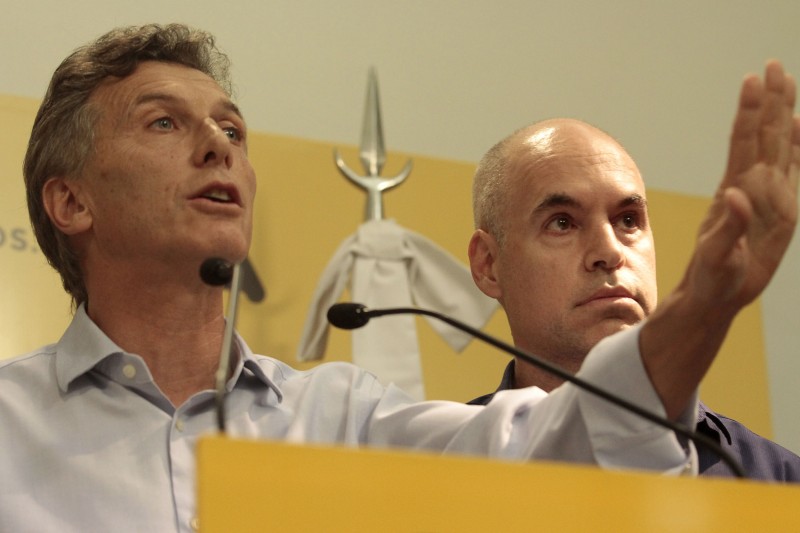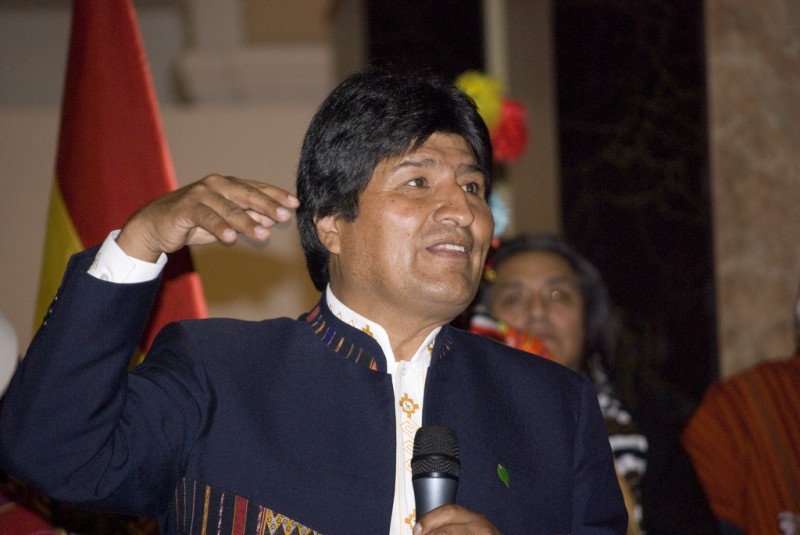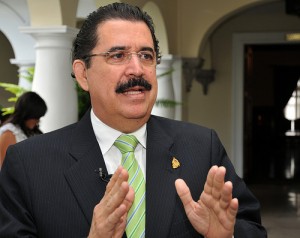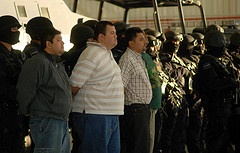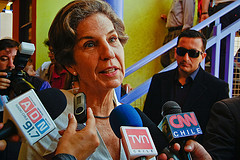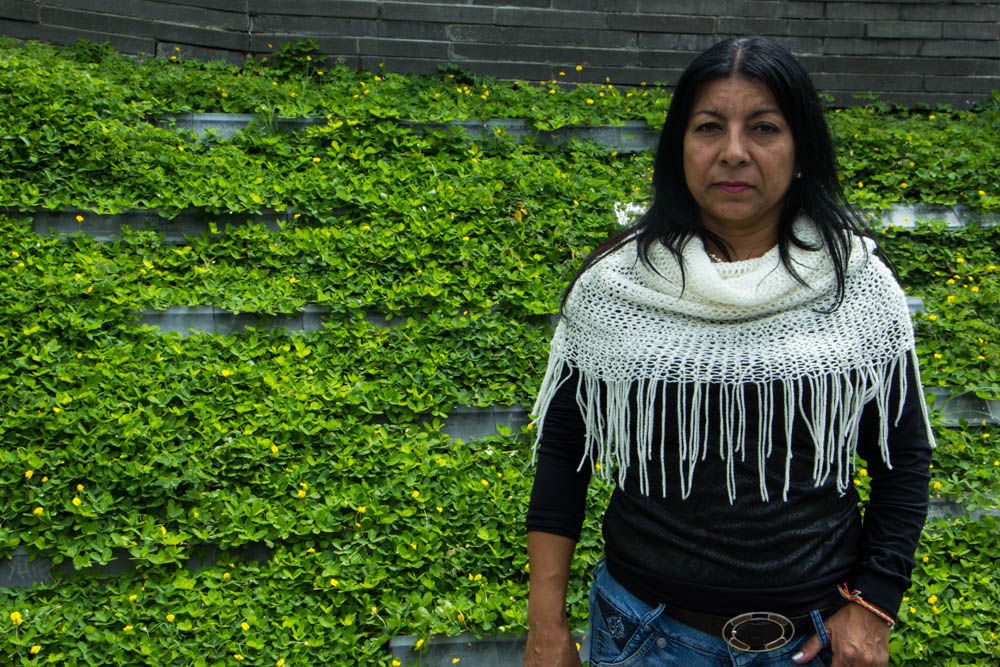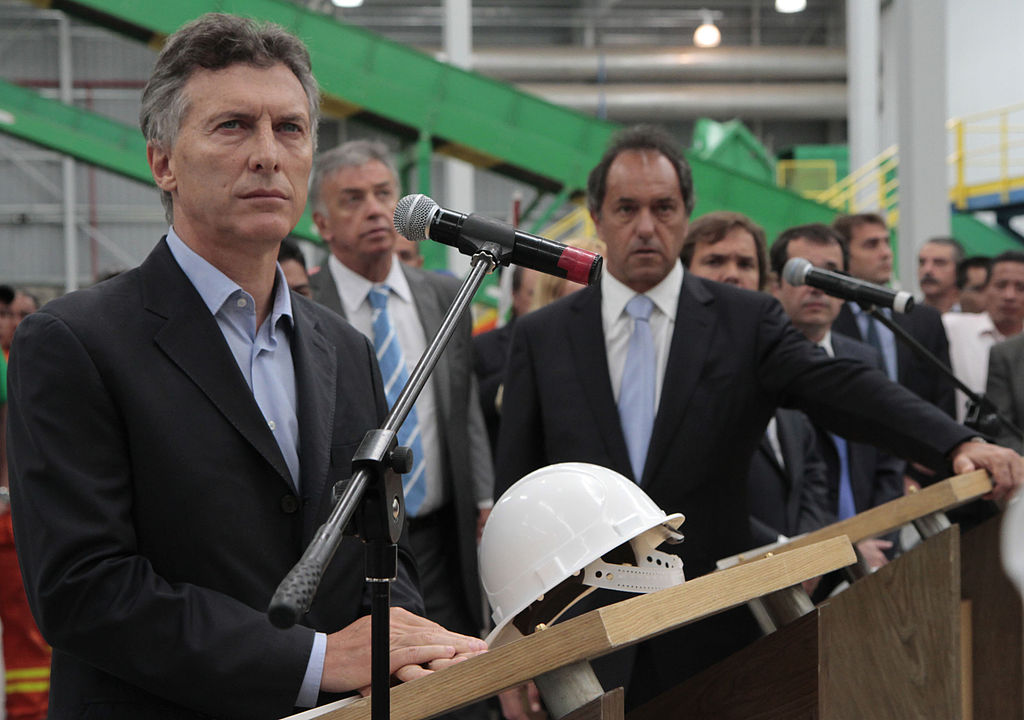
Argentina, Latin America: Week in Review, Southern Cone
Defeated Argentine Presidential Hopeful Expected to Support Center-Right Macri in Runoff
October 27, 2015 By Staff
Top Story — Argentina’s November presidential election is headed to a runoff with no clear favorite. Reuters reported on Monday, however, that unnamed officials from the camp of defeated presidential hopeful Sergio Massa confirmed he will support opposition candidate Mauricio Macri, who surprised the country in Sunday’s election by winning only some two percent fewer votes than outgoing leftist president Cristina Fernández’s heir apparent Daniel Scioli.
Sunday’s results were a shock to Scioli supporters, and signal a desire to shift from nearly 12 years of leftist “Kirchnerismo” governance, which began in 2003 with the election of Fernandez’s late husband Néstor Kirchner.
While their policies have nationalized industries, expanded social welfare and decreased unemployment, critics point to a 25 percent annual inflation rate and the country’s 2014 default on its public debt. The president was also embroiled in scandal earlier this year over allegations that she participated in a cover-up of the 1994 bombing of a Buenos Aires Jewish community center that killed 85 people.
If elected, center-right Macri is expected to cut public spending and liberalize the economy to attract foreign investment. International investors will be keeping an eye on the upcoming runoff as U.S. traded bank stocks climbed in the wake of Sunday’s results, some seeing double digit gains.
All three candidates pledged to increase security and crack down on drug trafficking, a rising concern among Argentines. While Scioli supported expanding the role of the military in domestic policing roles, Macri and Massa went a step further, favoring giving the military permission to shoot down planes suspected of carrying illicit drugs.
Headlines from the Western Hemisphere
North America
- U.S. Vice President Joe Biden made a phone call Monday to Jimmy Morales, the former TV comedian who won Guatemala’s presidential election on Sunday, and offered to work with the Morales administration “to combat corruption,” according to a White House statement.
- The campaign of Democratic presidential candidate Bernie Sanders has hired prominent immigration activist César Vargas — a “dreamer” who earlier this year became the first undocumented immigrant permitted to practice law in New York — as a Latino outreach strategist in Nevada.
- Mexico was able to avoid destruction and the loss of human life during Hurricane Patricia in part because the government was aggressive and proactively deployed thousands of soldiers and police, evacuated tens of thousands of residents and informed the public of potential risks, according to the Los Angeles Times.
Caribbean
- Tentative results from Haiti’s Sunday presidential election will likely be unknown for at least 10 days, even though the election process was largely void of any violence or disorder, in part because the results can only be announced by the country’s Provisional Electoral Council.
- Cuban Interior Minister and famous revolutionary figure Abelardo Colomé Ibarra resigned Monday, citing health reasons.
- Cuba’s birthrate has plummeted since the 1970s, resulting in an increasingly declining — and increasingly older — population, a fact The New York Times says is likely to cause both economic and political crises in the future.
- Two French pilots convicted of trafficking cocaine in the Dominican Republic have fled the country, the BBC reports.
Central America
- The highly publicized arrest of a mayor in Honduras on Oct. 22 for his alleged involvement in a criminal organization points to a larger trend of changes in regional distributions of power, which have given local governments more control of budgets and security forces, according to InSight Crime.
Andes
- The ELN, Colombia’s second-largest rebel group, reportedly ambushed and killed 12 security officers as they returned ballots cast in Sunday’s municipal and gubernatorial elections in an indigenous reservation in the country’s central Boyacá province. Colombian President Juan Manuel Santos said the attacks threatened talks that are taking place now in preparation for formal peace negotiations between the ELN and the government.
- Venezuela’s chief prosecutor has denied claims made by a former employee, who has since fled the country, that her office used false evidence in the trial of Leopoldo López, an opposition leader sentenced to 14 years in prison for his role in anti-government protests.
- A former Ecuadorian judge whose testimony earlier this year helped a U.S. judge throw out a $9.5 billion pollution lawsuit against Chevron has now retracted his story in an international tribunal, Vice News reports.
Southern Cone
- Brazilian police raided the offices of a company owned by the son of former President Luíz Inácio “Lula” da Silva in the search for evidence relating to bribery, extortion and influence trafficking between the company and the Brazilian Finance Ministry. The raid is the latest in a series of bribery and influence peddling charges that have tarnished the reputation of Lula and his Workers’ Party.
- Analysts have forecasted that several key economic indicators in Brazil are worse than expected, and the country’s recession could deepen in 2016.
Subscribe to Today in Latin America by Email
< Previous Article
